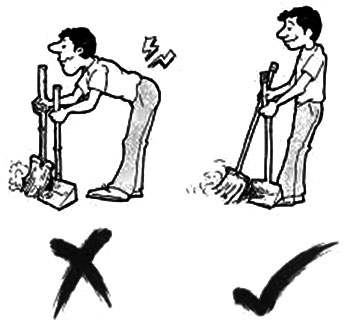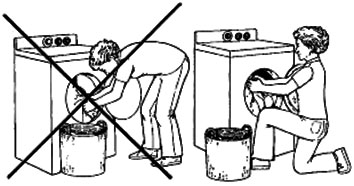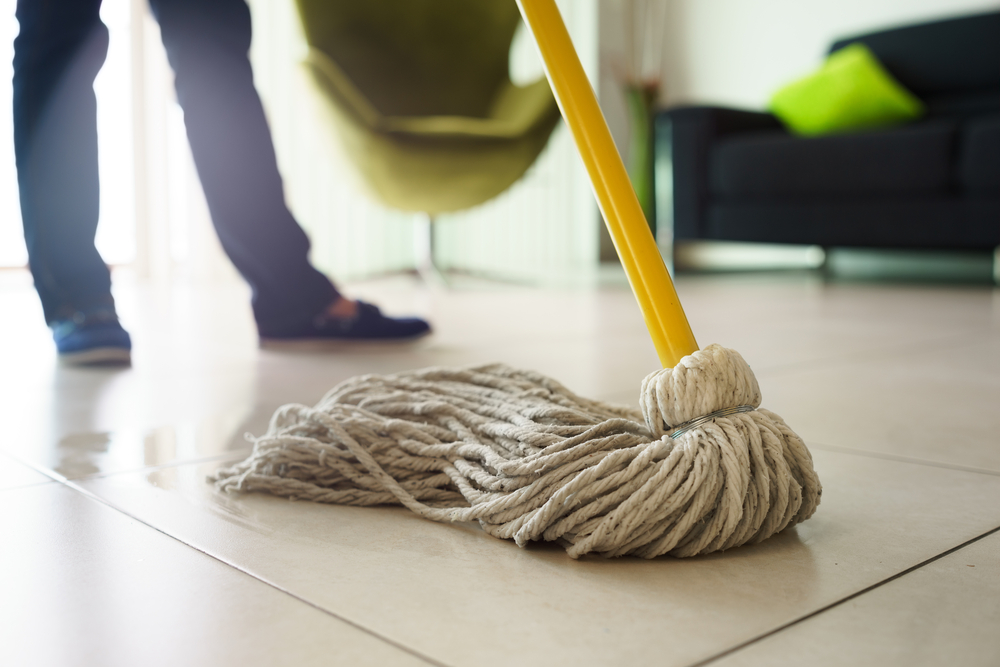Should I get down on all fours and mop the floor?” is a common question physiotherapist Shipra Kumari has been facing from patients ever since the lockdown started and the answer is a strict “no”.
With most domestic workers out of the picture, residents are having to cook and clean by themselves and Kumari, who runs Alexa Active Aging healthcare services at New Town’s Snehodiya senior citizen’s home, has been receiving many a call about the right way to perform chores.
“In every other house, there is a homemaker suffering from pain in the back or legs and in some cases, this dates back to well before the lockdown. Women have been suffering for years because of wrong posture while conducting chores,” says
Kumari, who lives in New Town’s BB Block.
The good news is that much of the pain and many of the injuries associated with chores are avoidable. “ Low back pain, neck pain, tennis elbow, plantar fasciitis (heel pain) can all be avoided if your posture is correct,” Kumari says, sharing some tips with The Telegraph.

Sourced by the Telegraph
While cleaning
When mopping the floor: Again, do not get down on all fours. Use a mop with a vertical stick attached and keep your back and neck straight while at it. Do not stoop as the awkward position will lead to back pain.
Often people’s backs start aching while sweeping or mopping but they continue just so they can get over with the chore at one go. Do not do this. If you are in pain, take rest.
While washing
Laundry
When loading the washing machine: Do not bend over. This is for front-loading machines. Keep a stool in front of the machine or get down on one knee so you can comfortably put clothes in. Do not try to stuff in clothes while standing and bending over.

Sourced by the Telegraph
When hanging up clothes to dry: Forget about wringing them. The repetitive wrist action can lead to injuries.
At the market
When returning with bags full: Don’t carry everything in one hand. Divide bags equally so both your hands lift more or less the same amount of weight. When lifting heavy bags, squat slightly and bend your knees. Do not stoop over and try to lift the bags. You’ll hurt your back.
Slip risk
Use non-slip surfaces and anti-fatigue mats to prevent slippage and to stand comfortably.
Always wear slippers at home and make sure they have some cushioning and anti-slip soles, especially under the heels. Don’t wear completely flat slippers. The “Crocs” variety are suitable.
In pain
If you indeed incur an injury or develop pain doing chores, apply cold pack. You can continue this for seven days as the pain is initially acute. Thereafter apply hot pack, but consult a doctor.
In the kitchen
When chopping vegetables: It is best to use automated devices available in the market. If you have these gadgets, use them to chop, peel and grind vegetables so you are spared repetitive motion of your hands. Repetitive motion for upper arms, elbows, forearms and wrists is defined as more than 10 repetitions per minute. For activities involving the shoulders it is more than 2.5 repetitions per minute. These can lead to musculoskeletal injuries.
If you do not have these gadgets and have to chop veggies manually, make sure your elbow is not pressed against the table for too long. This can lead to a kind of pain called carpal tunnel syndrome.
Also ensure your knives, scissors etc have adequate padding and good grip at the sharp edges lest you stress your hands.
When kneading dough: Alternate yours hands. The idea is to avoid repetitive motion. So after a few times of kneading the dough with your dominant hand, switch over the to the other and return to the first again. But once again, it’s best to use dough-makers and roti makers.
When washing dishes: Do not stand at the sink for hours at a stretch. Any static posture is bad for the body, where static posture is defined as body positions held without movement for more than 10 seconds.
Place a footstool in front of you and keep one leg on it. After a while, change legs. This will shift body weight and reduce stress on the legs and lower back.
It is also a good idea to pull up a stool and sit while at it. Else people can get plantar fasciitis, that causes heel pain.
When reaching for a utensil: Don’t try to reach too high and far, especially beyond the point of comfort. Move yourself close to the utensil before pulling it to you.
Try storing items on shelves between knee and shoulder-height to avoid excessive torso flexion to reach them. If the object is too high above, stand on a stool before reaching for it. Also, face the objects you are working on; do not twist and reach behind or to the sides of the body.
The shelf design matters too. It is ergonomical to use sliders.
When lifting a heavy container: Simply don’t. Instead of one heavy container of flour, divide the contents into three small containers that will be easier to lift. If this cannot be avoided, remember that it is easiest to lift heavy items from mid-height. Never place heavy boxes on the ground or ground-level shelves as you can injure yourself lifting them.
In case of objects like gas cylinders, keep them on wheels at the bottom so you can gently pull them in and out instead of lifting dead weight.
When bending over: Sit on a stool or chair instead. This is better than squatting, kneeling or hunching while working.
When carrying food to the table: Do not try to carry bowls that are slippery, too hot or unevenly balanced. This will avoid accidents.
When working for long
Stretches: Try job rotation. For instance, while washing dishes, take frequent breaks. Stretch your hands, neck, do “tadasana” by lifting your arms over your head or simply tend to some other chore before returning to the dishes.










